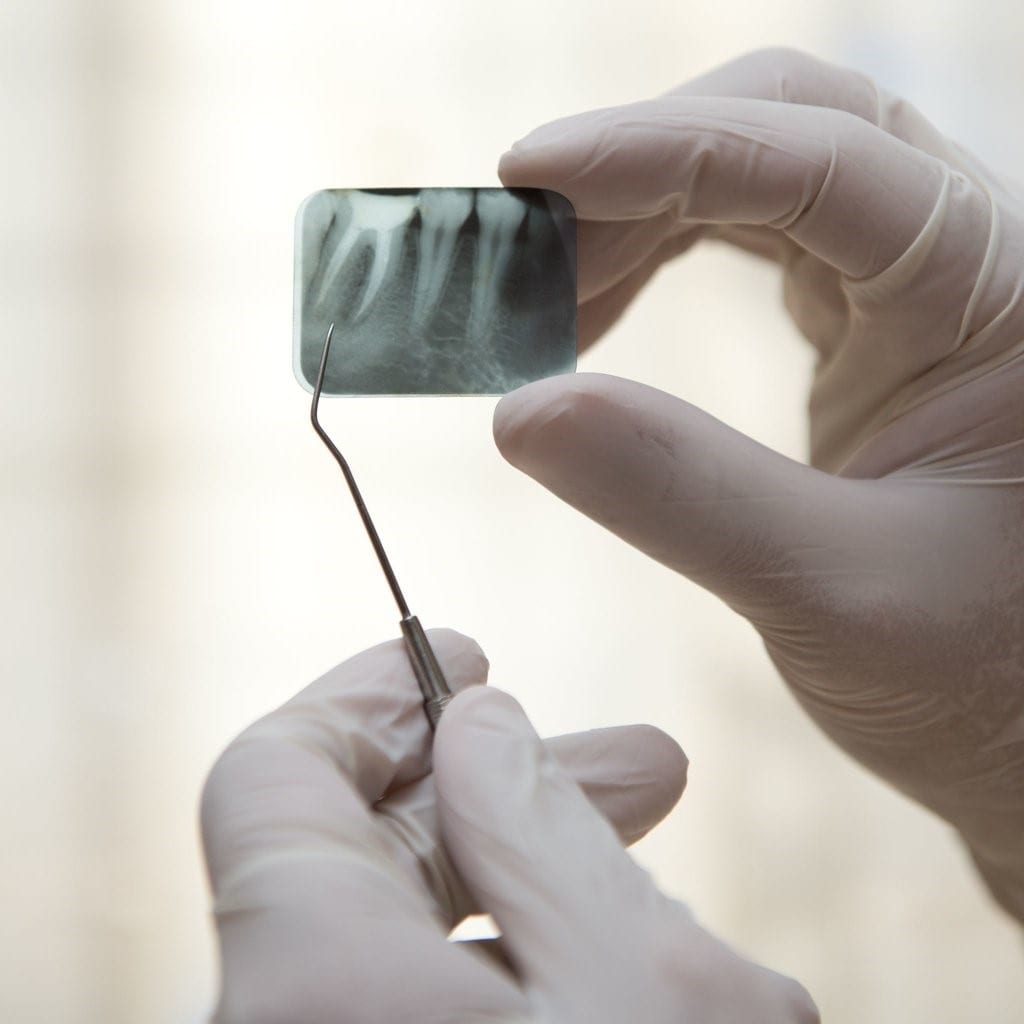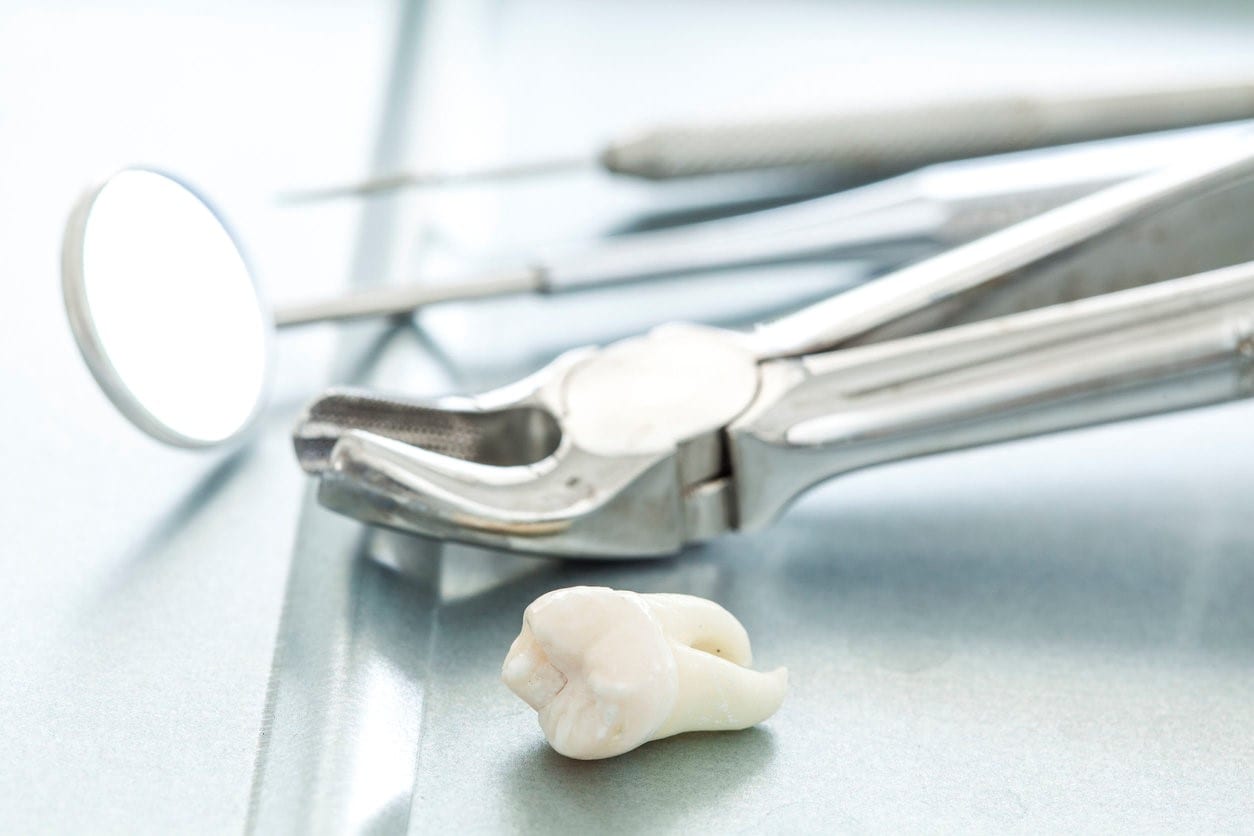
Whether or not you’ve heard about someone’s experiences with a root canal, it’s definitely not something most people look forward to. If you are experiencing intense tooth pain, though, sometimes a root canal may be your best option to find relief.
If you are curious about root canals, or have been looking up your symptoms and may think you need a root canal, read on.
Common Questions Dentists Get about Root Canals
Why Do Dentists Recommend Root Canals?
Sometimes, a crack in the tooth or a deep cavity may allow bacteria to reach the tooth’s innermost layer (called the “pulp”) which causes it to decay or die. Pulp is made up of blood vessels, nerves, and tissue, so when it is inflamed or infected, you will probably feel some pain around that tooth or in your mouth. If you visit a dentist for this pain, he or she may recommend a root canal (sometimes called an “endodontic treatment”).
Root canals cannot revive a tooth or pulp that has died, but they make it possible to remove the inflamed pulp in a way that allows your tooth to stay in your mouth and function. It is okay to remove pulp because it is not strictly necessary after a tooth has finished growing and developing. Many compare root canals to the “mummification” of a tooth – the outer structure remains intact, but the inner parts have been removed.

What Happens When a Dentist Performs a Root Canal?
Before beginning a root canal, the dentist must first determine whether there is any dead or decayed pulp and where it exists in your mouth. To do this, he or she will take an x-ray of your teeth.
Before any pulp is removed, the dentist will give you local anesthesia around the tooth where the procedure is being performed. The dentist will then open the tooth (or use an existing crack to access the inside of the tooth) and the decayed/dead tooth pulp will be removed.
Afterward, the tooth will be cleaned to make sure no bacteria is lingering inside of your tooth’s canals. The areas where the pulp used to be are then filled with “gutta-percha,” a rubber-like material, and the outside of the tooth will be filled or covered up with a crown so it can function normally again.
There is a brief recovery period where you may still feel some discomfort around the tooth, but after a few days it should go away.
I’ve Heard Root Canals Are Really Painful. Is This True?
Root canals often get a bad reputation for being painful. However, if a dentist administers anesthesia before the pulp is removed, you will only feel a bit of pressure while the rest of the procedure is being performed. In short, root canals are no more painful than a filling. Some dentists also offer an oral medication that will allow the patient to be in a state of “Conscious Sedation” during the procedure.
How Long Does a Root Canal Take?
For the whole procedure, you may be sitting back in the dentist’s chair for as little as 30 minutes, or as long as 90 minutes. The time it takes will vary depending on how much pulp is infected or dead, how deep into the root of the tooth the dentist has to go, and how many appointments the procedure will take. (Some dentists offer two separate appointments: one for the root canal, and one for the permanent filling. During the first appointment, a temporary filling will be applied.)

What’s The Difference between a Root Canal and an Extraction?
If one of your teeth contains dead or decaying pulp, a dentist may also offer an extraction. This has a similar goal: to relieve pain caused by dead teeth. Extracting a tooth, however, requires a different process than preserving it with a root canal. If a dentist wants to extract the tooth, it will be permanently removed. There is typically more pain and recovery time involved with an extraction.
Extracted teeth can be replaced by dental implants: this is a process that will provide you with a strong, false tooth that looks and functions like your old tooth, but will not be subject to decaying pulp in the future. For more information about getting dental implants for missing, broken, or dead teeth, click here.
I Think I Need a Root Canal… Now What?
If you are experiencing intense pain and think you might need a root canal, do not wait to contact a dentist. Your infection will only get worse as time goes on, and dentists will be able to prescribe antibiotics if you have to wait to get the full procedure done. The sooner you get in contact with a dentist, the sooner the procedure will be over.
Have questions about root canals, extractions, dental implants, or other dental procedures? Give us a call or schedule an appointment today.






